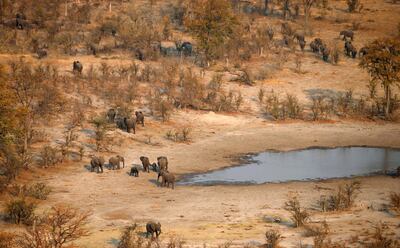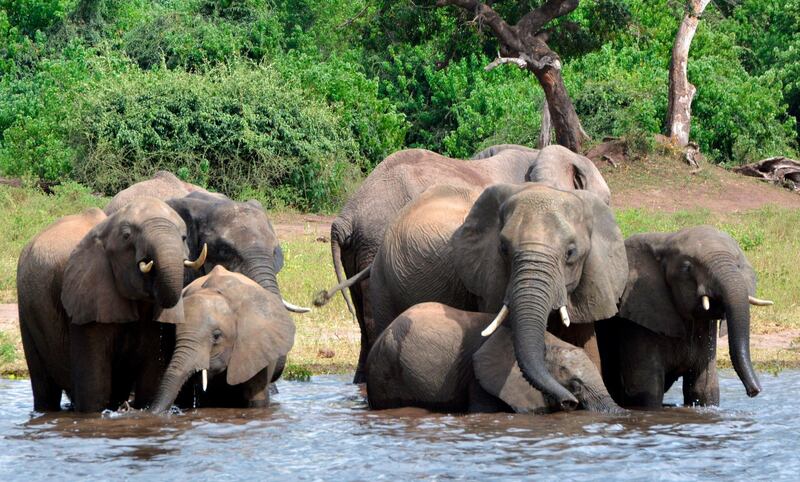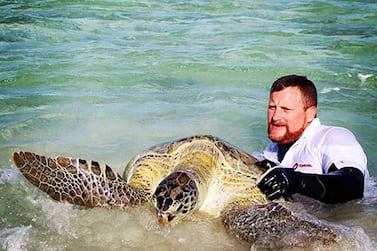Cash-strapped nations in southern Africa want to end a ban on selling ivory and lift restrictions on elephant hunting, a decision that has not gone down well with environmentalists.
Global environmental forum the Convention on International Trade in Endangered Species of Wild Fauna and Flora (CITES) will soon meet in Sri Lanka. Five countries, Zimbabwe, Botswana, South Africa, Namibia and Angola, plan to lobby for the end of an embargo on ivory sales.
Some of these countries have already begun work-arounds for CITES restrictions. Botswana announced last week it will begin licensing elephant hunts, in spite of fierce resistance from environmental groups.
“This is an ethical issue involving the killing of wild animals for fun,” says Will Travers, president of wildlife organisation Born Free. “Trophy hunting is not welfare friendly, it targets specific animals according to their perceived value as trophies, ignoring their contribution as members of their communities.”
Others however, contend that limited hunting will not damage Botswana’s overall elephant population, assumed to be around 160,000 animals.

“You are going to hear a lot of misinformation about this - especially around this being a threat to elephant populations,” Dani Rabaiotti an environmental scientist at the Institute of Zoology at the Zoological Society of London. “Botswana is home to around one-third of the world's remaining population of elephants. That happened despite hunting being legal until 2014.”
Zimbabwe, which is suffering severe cash shortages, is leading the charge. In May, Zimbabwe Tourism Minister Prisca Mupfumira said through state media that the country had sold around 100 elephants over the past six years, mostly to China, and raised $2.7 million.
The announcement caused a torrent of outrage among environmentalists and animal lovers.
“Shame on Zimbabwe,” says Dr Paula Kahumbu, an elephant expert and chief executive of Kenya-based environmental organisation WildlifeDirect. Kenyan herds have been ravaged by poachers, and the country wants the restrictions on trade in elephant products to remain.
The CITES ban was put in place in 1989, in response to elephant herds being decimated by poachers wanting their tusks.
At the upcoming CITES gathering, the topic will pit southern African states against many northern countries that want the ban to remain.
Currently, most African countries are listed as Appendix I, meaning no trade in elephant products. Just four – South Africa, Zimbabwe, Namibia and Botswana are Appendix II, which allows limited trade such as live animal sales.
These countries now want to have their restrictions lifted completely and resume sales of ivory.
“They are pitching for a big fight,” Dr Kahumbu says. “Kenya and her friends want to transfer all elephants to Appendix I, which will send a clear message: no ivory trade for anyone.”
The southern bloc is equally determined to get its way. These countries complain that they are being penalised for their successful environmental management.
“Zimbabwe has 84,000 elephants, but it's carrying capacity is 55,000,” Nick Mangwana, information secretary for the government of Zimbabwe said. “Humans and elephants are living in conflict.”
More than 200 people in Zimbabwe have been killed by elephants over the past five years, as elephant herds grow and humans encroach on their land.
Meanwhile, Zimbabwe’s stockpile of ivory grows: like the other regional countries with large parks, tusks are harvested from animals who die of natural causes.
“Our ivory stockpile is worth over $300 million, which we can't sell because countries without elephants are telling those with them what to do with their animals,” Mr Mangwana says.
Kenya’s approach has been very different. In 2016, the country burned 105 tonnes of ivory in a spectacular bonfire in front of the world’s media. The tusks were from at least 6,000 elephants that had died in various Kenyan parks. The bonfire took with it $100m in potential income, plus 5 per cent of global ivory stocks.
In 2008 however, CITES allowed a limited series of auctions that allowed ivory to be sold to accredited traders, who were mostly from China and Japan. According to CITES data, 102 tonnes of ivory were sold to raise around $15m for conservation. The average price paid was $157 per kilogram, which contrasts sharply with the black-market rate at the time of $750-850, CITES said.
Authorising another auction or even lifting the trade ban entirely will be a tough sell in 2019, when the public still remembers the killing of Cecil the lion in a Zimbabwe game park four years ago. Besides, CITES itself still sees elephants Africa-wide as deeply vulnerable to poaching.
“Illegal killing of African elephants for ivory remains a significant threat to elephant populations in most of the range states,” says CITES Secretary-General Ivonne Higuero. More elephants are still dying at the hands of poachers than natural deaths.
In total, the African elephant population has fallen from an estimated 12 million a century ago to some 400,000. As the human population grew over the last hundred years, these remaining animals are losing territory, Ms Higuero said. “The human population of Africa has grown tenfold, from 125 million to 1.225 [billion], creating competition for land with elephants.”
Yet countries with large herds are demanding more control over elephant population size and the right to hunt them.
Botswana held a conference in mid-May, inviting neighbouring countries that share Kavango-Zambezi Transfrontier Conservation Area, a vast park that crosses national boundaries, to forge a joint strategy to present to CITES.
“We cannot continue to be spectators while others debate and take decisions about our elephants,” Botswana President Mokgweetsi Masisi was quoted as saying at the summit. Mr Masisi emphasised his point by handing gifts of traditional African stools made from elephant feet to his counterparts at the summit.
A theme emerging among those who support a resumption of the ivory trade is that their critics are often Western-backed organisations, from countries where indigenous elephant populations have long since been hunted to extinction.
“These decisions are made by wealthy countries with the economic muscle to enforce them,” says Emmanuel Fundira, chairman of the Safari Operators Association of Zimbabwe. “These rules and regulations are not necessarily in the best economic interests of those nations who have successfully managed their elephant populations.”
Critics contend that revenue from hunting and ivory sales pale in comparison with what can be earned from ordinary tourism and photo safaris. However, there is no question that these activities can be lucrative, regardless of how unpalatable they may be to the public.
South African ranchers now raise lions specifically for trophy hunting, or even to be slaughtered so that their body parts can be harvested and sold to the Chinese traditional medicine market. Kenya recently attracted global criticism for running donkey slaughterhouses, also to serve Chinese demand.
Zimbabwe meanwhile recently issued a license to a German hunter for nearly £40,000 (Dh164,000), to shoot what environmentalists claimed was one of the largest elephants ever seen in the country.
The license triggered international outrage, including from celebrities such as British comedian Ricky Gervais, who tweeted to his 13 million Twitter followers, “Elephants will be extinct by 2030 if the ivory trade remains the same. And for what? For trinkets for morons to own?”
Regardless of public pressure, these countries are likely to push ahead with their plan to commercialise their elephant herds. It will be popular among rural communities, an important consideration during election season. Botswana goes to the polls in October, and the business of elephants is becoming a campaign issue in the country.
Many worldwide will not welcome the lifting of restrictions on these animals. Angela Suby, a regular visitor from the UK to the Chobe National Park in Botswana, says she and her family will boycott the country if it presses ahead.
“Tusks belong on elephants. These are beautiful creatures and if any government takes steps to harm them, I’m taking my money elsewhere and spending it where elephants are valued for more than dollars.”







